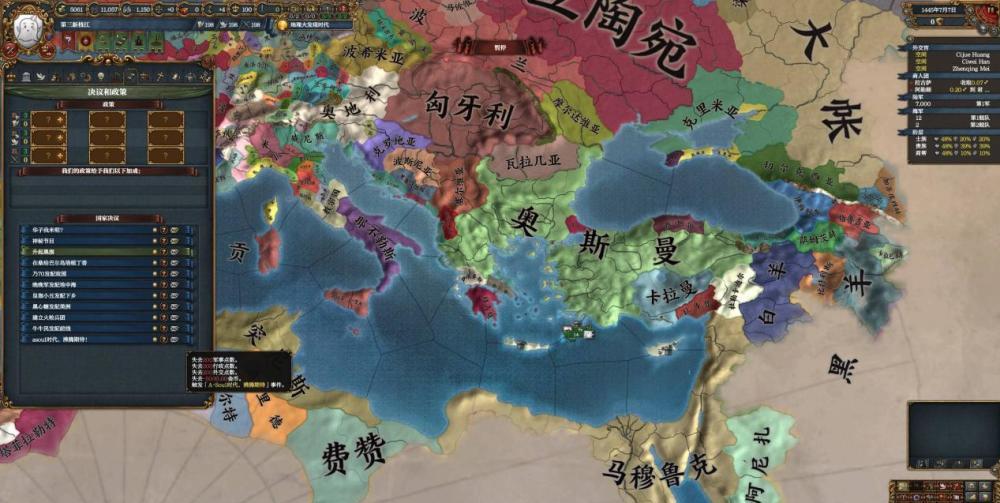Many people think that the turn-based system is outdated, and the editor thinks that it is completely wrong.
Turn-based games are strategic and are an excellent game operation mechanism in themselves, especially for battle-based games that require a large number of classes or resources. For example, the "Civilization" series, the "Continental Storm" series, etc., this kind of gamer needs to control hundreds of units, and there are also dozens of events that need to be handled, even if today's computers can calculate all the event developments in real time, but if you play in a real-time way, the actual experience will be very bad.

Imagine that your border line is attacked by the enemy, the quarry is destroyed, the enemy bomber passes by, the farm is blown up, all the artillery in the barracks is killed, the system of natural disasters is activated, and the dam is destroyed. In the face of various situations, all the events are changing further, all of which need to be dealt with immediately, you are busy and anxious, the whole process is highly tense, where can you still experience the fun of the game.
However, it may not be convincing to use this type of game to illustrate the advantages of turn-based systems, and it is undoubtedly an action game that is inevitable today. First of all, I would like to say that action games are indeed more suitable for the use of real-time game mode, and the game experience is better. After all, turn-based focus is on the formulation of strategy and the victory of thinking, while action game players pay more attention to the refreshing experience brought by the real-time feedback of operation.
But that doesn't make sense that turn-based combat isn't suitable for action games, for example, Dragon 7 makes turn-based combat fun. Although the game uses a turn-based combat method, it is not a "you punch me one punch" fight as some players imagine, but an innovative way of playing, adding real-time defense mechanisms, knockdown combo mechanisms, position changes, and environmental interaction.
Instant Defense is the instant the enemy attacks, which can reduce damage, somewhat similar to the shield counter-mechanism in the Soul game. Knockdown combos are when you can continue to attack once after knocking down an enemy, even if it is not the turn you attacked. Position change means that you can adjust your position during the opponent's attack to avoid some damage. The environment interaction is more innovative, and the attacking character can pick up nearby objects and perform new mode attacks. It is precisely because the game adopts a turn-based mode, players can choose different attack methods before the battle round, "Dragon 7" has room to add new gameplay, so the turn-based system is not unusable for action games.
As a player who likes turn-based games, Xiaobian prefers the traditional turn-based gameplay, studying the formation, combat strategy and team cooperation, such as the previous "Fantasy Journey to the West", as well as the recently played "Dream World 3" mobile game. In the "Dream World 3" mobile game, the skill types are divided into fierce, pu, smart, three types of skills to restrain each other, the character has a variety of attributes such as physical attack, magic attack, seal, treatment, etc., through the player's clever team combination, flexible spell casting strategy, I feel that I have found the memories of teaming up with my classmates when I was a child.
At the end of the day, I don't know if everyone has changed their views on turn-based games?